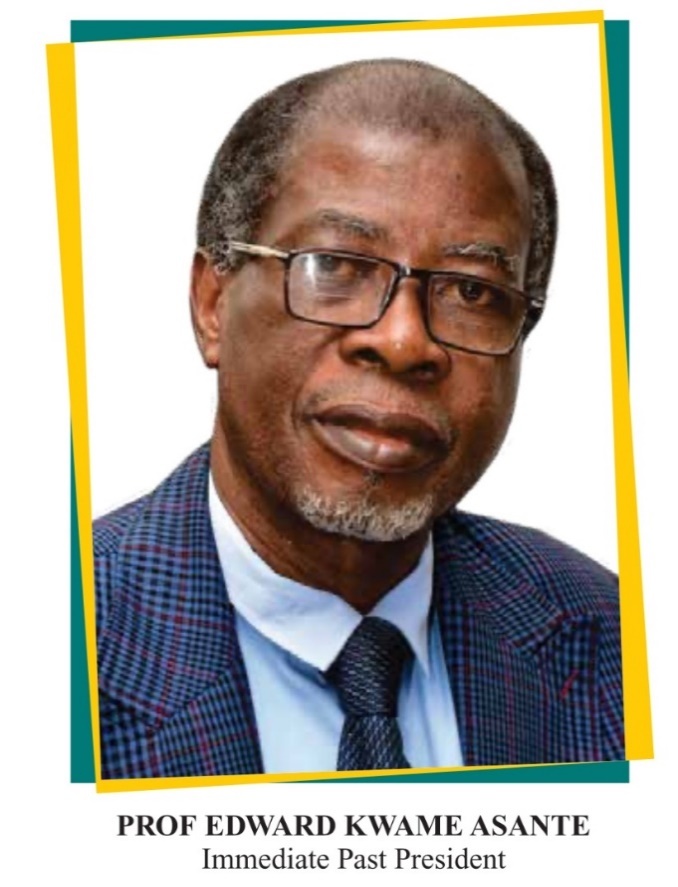The Garden City University College (GCUC) in Kwabre East of the Ashanti Region has introduced a Technology-Driven Distance Learning Programme to enhance academic activities in the institution.
Launched during the dreaded COVID-19 outbreak, GCUC digital learning aims at enabling students from all walks of life to acquire knowledge remotely. Additionally, this development has exposed the student population to digital learning, which is increasingly becoming the order of the day.
Addressing the 14th Graduation of GCUC, which was held recently at the campus of GCUC at Kenyaase in the Kwabre East district of the Ashanti Region under the theme ‘Transforming Higher Education through Digitalisation: Prospects and Challenges’, Prof. Edward Kwame Asante – the immediate past president of GCUC, indicated that in the last two years higher academic institutions across the globe, including GCUC, have re-evaluated the way they teach.
Prof. Kwame Asante told the gathering that in order to stay competitive and relevant in the higher education sector, GCUC has embraced new opportunities to strengthen the relationship between insight, values and focus to advance the university college’s fundamental goals.
He disclosed that in the midst of the COVID-19 pandemic, technology played a pivotal role in the running of GCUC – a move Prof. Kwame Asante noted enabled them to get in touch with their students and keep academic activities running.
“Throughout the COVID-19 pandemic GCUC continued to embrace technology, which enabled them to get in touch with their students to help them in their studies, making student success a top priority – meeting students where they are both academically and geographically to ensure that they realise their full potential now and in the future of the pandemic era. The result is what we are witnessing today, with the graduation of post-diploma Nursing and Midwifery students from our Learning Centres in Wa, Tamale, Takoradi and Kumasi,” he emphasised.
Prof. Asante further disclosed that in the university college’s quest to enhance digital learning, the institution has established a Centre for Open, Distance and e-Learning (CODeL) that aims to provide technology-driven programmes, using blended distance education to increase access by enabling students to access education wherever they are, and be able to combine their studies with work, family and social responsibilities.
In a keynote address read on behalf of Prof. Mohammed Salifu, Director-General of Ghana Tertiary Education Commission, by Mr. John Dadzie-Mensah, he mentioned that technological evolution has led to digitalisation of the education sector and to inclusiveness in the sector, removing barriers (such as socio-cultural barriers) to formal education, and permitting persons of all social classes to access formal education.
According to Prof. Salifu, through digitalisation minorities in society such as the aged, women and the physically challenged who could not previously access higher education can now do so.
Additionally, he noted the working class and people who for some reasons could not pursue the regular path for formal education can now access formal education in the comfort of their homes through the power of technology.
The Director-General of Ghana Tertiary Education Commission however called for caution as higher academic institutions fall on technology to enhance education, since it could come with some shortcomings.
He said: “Flexibility in digitisation provided in higher education delivery also exposes the technology and its patrons to some challenges which need to be carefully managed to facilitate access, prevent abuse and engender confidence in the quality of graduates it produces”.
On his part, the Ag President of GCUC, Dr. Nana K. Owusu-Kwarteng, urged the graduates to be agents of change by embracing and sharing their vision of being innovators and change agents.
He said: “GCUC is eagerly waiting for the day you will turn to your alma mater and become a partner and benefactor to the soon to be launched GCUC Endowment Trust Fund”.
Giving historical antecedents of the academic institution’s formation, Dr. Owusu-Kwarteng explained that sometime in 2002 GCUC was known as the College of Information Technology (CITMAS); however, twenty years later – after transitioning to GCUC in 2005, the institution has now been transformed; an achievement he attributed to tenacity of purpose and focus, which he noted are part of traits engineered into their students.
He urged the graduates to be ethical in their professional life at the workplace and in their private lives, since a dent not only affects them but will certainly impact the GCUC’s brand.
In a related development Mr. Albert Acquah, the founder of GCUC, has lauded an alumnus, Joshua Twum Barimah, for helping to provide a facility for nursing mothers who are students to breast-feed their kids.
Addressing the gathering congregation, Twum Barimah – who doubles as the Chief Executive of Joequat Group of Companies, mentioned that during his four-year academic training at GCUC he identified a challenge that required a solution for the benefit of both students and the university college.
He indicated that nursing mothers took their kids to the classroom during lectures, a situation that made lectures uncomfortable for colleague students and lecturers.
To address this problem, Twum Barimah decided to construct a facility that would accommodate children on campus while their mothers attended lecturers or pursued their academic dreams.










